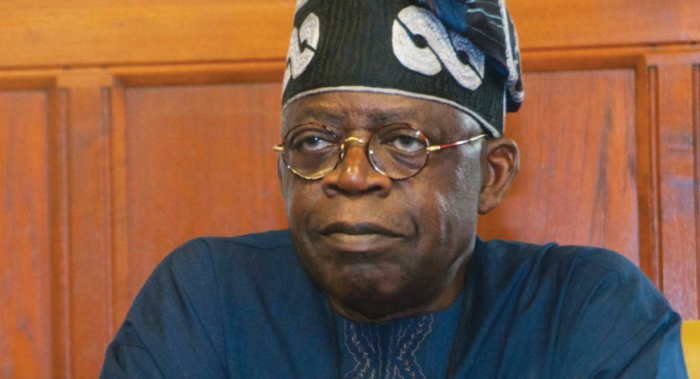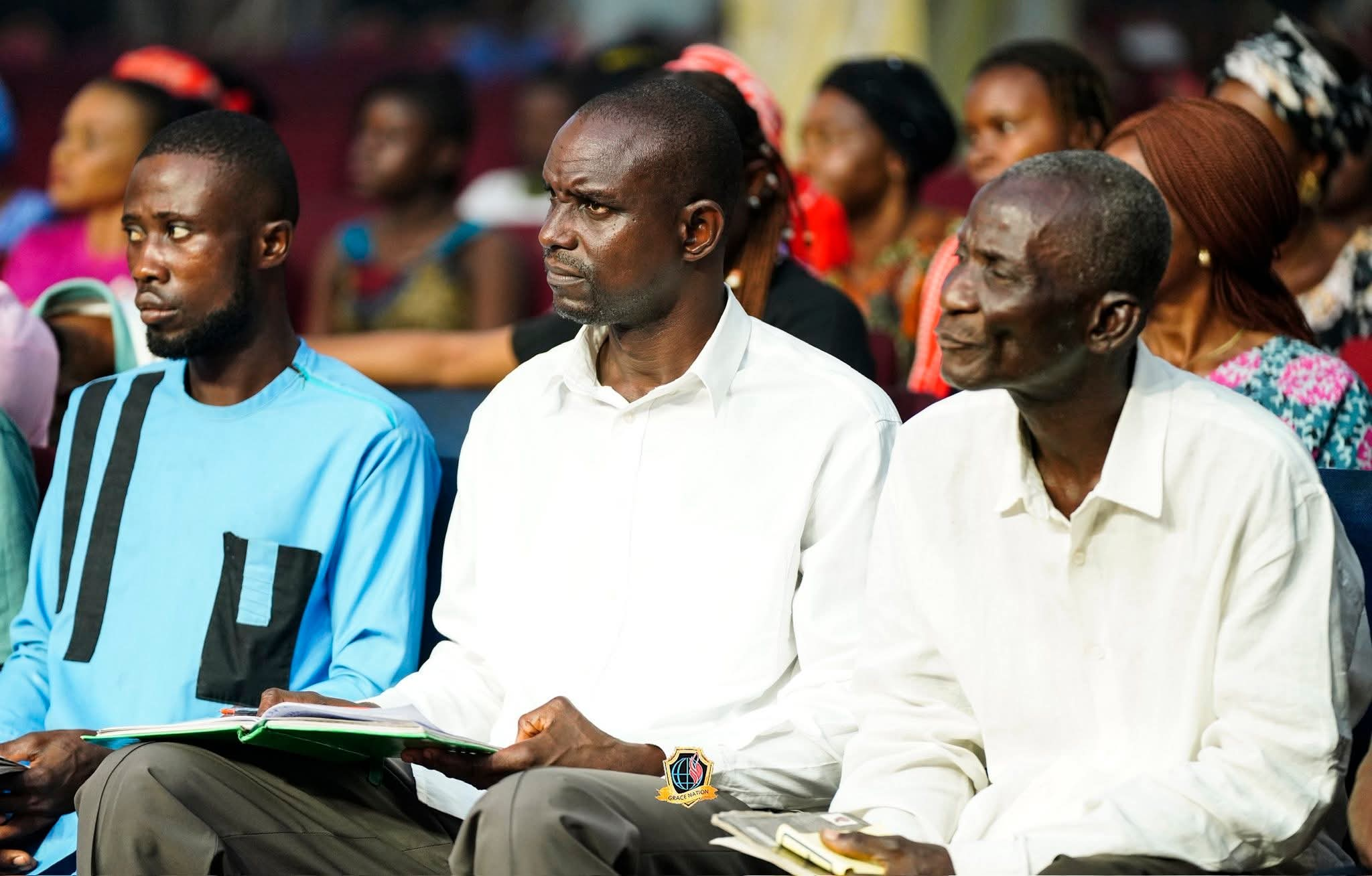celebrity radar - gossips
BRF At 55 : Greying Gracefully, Going on with Gusto

By HAKEEM BELLO
In November 2010, in a tribute to Stephen J. Solarz, a former nine-term New York congressman, Douglas Martin wrote that he was a “torrent of activity” supporting it with a statement issued by the late lawmaker’s office that “during his first six months in Congress, he made 12 speeches on the House floor, co-sponsored 370 bills, held 11 news conferences, made 24 trips to his district and attended 99 events there, visited 23 subway stations, sent constituents 513,720 pieces of mail and took an 18-day tour of the Middle East.”
In October 2015, Babatunde Raji Fashola, SAN, was honoured amongst seven distinguished personalities with an award named for Stephen J Solarz by the International Crisis Group.
From his eight-year tenure as the governor of Lagos State to his two-year-plus as Nigeria’s minister of Power, Works and Housing, our own BRF has, as the global conflict-prevention organisation acknowledged in conferring the honour on him, been a “relentless fighter for the improvement of people’s lives…”
Barely a month after the global recognition of BRF’s “commitment to resolving social, economic and security challenges in one of the world’s most challenging urban environments”, President Muhammadu Buhari tapped him to join him in tackling the nation’s multifarious infrastructural challenges.
Ever since, the three-in-one ministry has witnessed a “torrent of activity” towards the making life more meaningful for Nigerians of all strata.
Has he lived up to the recognition of the ICG and the confidence reposed in him by President Buhari to deliver?
His 55th birthday on 28 June affords us the opportunity to not only answer that question but also look at The Essential BRF.
For BRF, results rather than excuses should count towards measuring a leader’s gravitas. So, not for him any argument which suggests that , comparing an executive position with an appointive capacity within a complex federation such as Nigeria is like comparing apples with oranges. Not even if you illustrate with the now-common fiasco over the national budget as an example of a barrier to effective delivery of much-expected services to the people.
Any unbiased but informed observer would, unhesitantly, proffer that, within those constraints, and with the unwavering support from his principal, the minister has demonstrated unflinching commitment to reducing Nigeria’s infrastructural deficit to the barest minimum, one project at a time, across Nigeria’s 36 states.
One thing you can’t take away from BRF is his penchant for, to use a favourite word of his, dimensioning any problem, no matter how seemingly gargantuan. He is the master of drilling down. His staff at the ministry will attest to how, from the day of his inauguration, he has been engaging everyone in marathon consultations, sometimes into the night, to be able to put every problem in proper perspective and then ensuring that the job gets done – without any short-cut.
A DEVELOPMENT MATRIX
For him, nothing should be done superficially. Let’s take work on roads. He starts with the premise that good roads will help reflate and grow the nation’s economy, reduce travel time, cost of transportation of goods and services, and create jobs which will provide the economic means for the worker to live meaningfully. To achieve this, in the short term, would mean starting with roads which can be quickly completed to facilitate connectivity. This should further be guided by choosing first the roads which connect states together and bear the heaviest traffic such as the Lagos-Ibadan expressway, and working the way across Nigeria gradually. By sticking religiously to, and developing this plan, enunciated with his team in the Ministry with necessary policy and budgetary support from the Cabinet led by the President and National Assembly, albeit, with all the “constituency complications,” Fashola has been delivering on his mandate.
On Power, Fashola believes that predictable supply achieved through incremental, stable, and, ultimately, uninterrupted supply of electricity, availability will be a critical and defining component of our economic renaissance, job creation, GDP growth and reduction of income inequalities. This has formed the basis of the Federal Government’s Roadmap to Power with the accompanying policies and plans like the Power Sector Recovery Programme (PSRP) aimed at strengthening the responsibility of the Ministry as a regulator through the National Electricity Regulatory Commission (NERC), so that the GenCos and DisCos can be held to their contracts with citizens; getting the support needed to complete stalled power projects in the generation, transmission and distribution value chains; and improving the liquidity in the sector.
Coming with a practical experience from Lagos, Fashola believes the construction of houses will complement the economic growth drive by direct and indirect jobs in the housing value chain from construction companies, to artisans, labourers, vendors and many more. The Federal Government’s housing project is currently going on in 34 States of the Federation which have provided the required suitable land for the programme, currently at its pilot stage and poised to address the issues of affordability, acceptability and climatic/cultural diversities which have been the bane of the previous housing programmes.
What used to be the standard question about how one man can cope with the leadership of three ministries comes less frequently in its monotony now because Fashola has continually demonstrated that tackling challenges is his second nature. Never mind that he has had to sleep less than the averagely-required hours and do unusual things – for instance in 2017 during an inspection of projects in the North East, he led the team to drive on the road by the dreaded Sambisa Forest in the thick of the night – whilst greying graciously but achieving results. By the way, Hamza Idris of the Daily Trust, who was on the trip, had asked him what gave him the courage to travel at that time, he answered as only a BRF would: “Well, I don’t think it is courage. I have a job to do and it has to be done well. If you are building and managing roads, you can’t manage them from slides, you can’t manage them remotely. You must at least see how good or bad those roads are. It gives a sense, either of urgency, enthusiasm, or a combination of both, to be able to really deal with it. The Ministry of Defence is aware that we are here, but the security arrangement is just precautionary. We have seen ordinary Nigerians travelling in their buses. I have seen the Taraba Mass Transit Services, Adamawa Express, Bauchi Express and others. So, life is going on and we just have a job to do.”
There is no better way to end this birthday tribute to this quintessential man who is extremely loyal to his principal, political party and his principles, than quoting his answer to another question on that North East inspection trip: “I am never satisfied with anything I am involved in; I just keep going. It’s difficult to satisfy me, and if you ask me to assess myself, I would continue to push myself.”
· Mr Bello is Special Adviser, Communications to the Hon.Minister.
celebrity radar - gossips
E‑Money’s Grand Gesture: A Closer Look at the SUV Gift to Chinedu “Aki” Ikedieze

E‑Money’s Grand Gesture: A Closer Look at the SUV Gift to Chinedu “Aki” Ikedieze
By George Omagbemi Sylvester | Published by SaharaWeeklyNG
“Public Generosity, Celebrity Loyalty and the Symbolism of Wealth in Nigeria’s Entertainment Elite.”
On Tuesday, February 17, 2026, Nigerian billionaire and entrepreneur Emeka Okonkwo, widely known as E‑Money, once again captured national attention with a lavish and highly publicised act of generosity, gifting a brand‑new 2024/2025 Ford SUV to veteran Nollywood actor Chinedu Ikedieze, affectionately called Aki, during his high‑profile birthday celebration.
The event, held in Lagos amidst a constellation of entertainers, business figures and socialites, was itself part of an annual tradition in which E‑Money marks his birthday (on February 18) with large‑scale giveaways and spectacular shows of material philanthropy. This year, he announced the gift of over 30 cars to friends, staff and family, a gesture that quickly went viral as videos and images circulated across social media platforms.
In the case of Ikedieze, E‑Money’s gift appeared to be deeply personal. During the festivities, E‑Money stood beside his elder brother, Grammy‑nominated musician KCee and recounted how Ikedieze stood by him at his 2007 wedding. The billionaire explained that the SUV was a “token of appreciation” for the enduring support the actor had shown over the years which is a narrative that blends friendship with public celebration.
Ikedieze, a Nollywood staple with a career spanning more than two decades and over 150 film credits, including the iconic Aki na Ukwa franchise, visibly reacted with humble surprise as he received the vehicle, bowing his head in respect and gratitude. The actor later shared the moment on his Instagram account with a caption celebrating the gift, further fuelling online engagement around the event.
Beyond the spectacle, this incident underscores evolving dynamics in Nigerian celebrity culture and the intersection of wealth, influence and reciprocity. Sociologist Dr. Chinedum Uche of the University of Lagos, speaking on the broader implications of such high‑profile gifts, notes: “Philanthropy that is highly publicised can reinforce social bonds, but it also reflects a culture where generosity is intertwined with reputation economy; where giving becomes as much a social signal as it is an act of kindness.” The quote highlights how public acts of wealth transfer among elites serve layered social functions that extend beyond pure altruism.
Critics of such displays argue that ostentatious giveaways, particularly in a country with stark economic disparities, risk amplifying social envy and exacerbating perceptions of inequality. Economist Dr. Ifunanya Nwosu from the Lagos Business School observes: “In societies marked by economic stratification, celebrity largesse may inspire admiration, but it can also inadvertently highlight structural inequities; prompting questions about systemic investment in public welfare versus individual generosity.”
Still, supporters maintain that E‑Money’s annual tradition (which has in past years included cash gifts to his brother KCee, comedians and even domestic staff) reflects genuine gratitude and a commitment to uplifting his immediate circle, albeit within the private sphere.
For Ikedieze, the SUV stands both as a heartfelt gesture from a longtime friend and a public affirmation of their enduring relationship. As the video of the moment continues to circulate, the broader narrative has ignited discussions about the role of private wealth in public life, celebrity culture and how acts of giving are interpreted in contemporary Nigerian society.
In a landscape where influence and generosity often play out in equal measure on public stages, E‑Money’s gift to Aki is more than a headline, it is a flashpoint in ongoing debates about wealth, friendship and visibility in Nigeria’s entertainment and entrepreneurial ecosystem.
celebrity radar - gossips
Spiritual Reality: Wicked People Are Possessed by Wicked Spirits — Dr. Christian Okafor

Spiritual Reality: Wicked People Are
Possessed by Wicked Spirits — Dr. Christian Okafor
…..“You don’t need to offend them before they attack you.”
…..“Your only true help comes from God.”
Demons are strategic and calculating. They detect threats quickly and position themselves to resist any power that may expose or overpower them.
According to the Generational Prophet and Senior Pastor of Grace Nation Global, Christian Okafor, spiritual intelligence operates both in light and in darkness—and believers must understand this reality.
Dr. Okafor delivered this message on Thursday, February 19, 2026, during the midweek Prophetic, Healing, Deliverance and Solutions Service (PHDS) held at the international headquarters of Grace Nation Worldwide in Ojodu Berger, Lagos, Nigeria.
The Operations of Demons
Teaching on the subject “Spiritual Reality” with the subtitle “Operations of Demons,” the Man of God explained that when demons possess individuals, their behavior changes. Such people may attack, bully, or resist those sent by God to help them, unknowingly rejecting divine assistance and prolonging their struggles.
“You don’t need to offend a demon before it attacks you,” he said. “What you carry is enough to provoke opposition. The greater your potential, the greater the battle.”
Dr. Okafor noted that many believers misinterpret battles as signs that God has abandoned them. However, he explained that some battles are permitted for growth, training, and divine glorification.
According to him, God may allow certain confrontations so that believers understand spiritual warfare and emerge stronger.
“Some battles are necessary,” he emphasized. “They push you into your turning point.”
He further stated that God does not respond to lies, blackmail, or bullying. He responds to His Word. Therefore, opposition is not proof of God’s absence, but often evidence of destiny at work.
The Weapon Against Demonic Attacks
Addressing solutions, Dr. Okafor described prayer as the strongest weapon against satanic operations.
“Prayer is the license that invites God into your battles,” he declared. “God does not intrude—He responds to invitation.”
According to the Apostle of Altars, understanding the principles and discipline of prayer enables believers to receive divine strategies for overcoming demonic resistance. Without prayer, he warned, spiritual help cannot be activated.
“You cannot receive help without God,” he concluded. “And you cannot engage God without prayer.”
Manifestations at the Service
The midweek gathering was marked by a strong move of the Spirit, with testimonies of deliverance, miracles, restoration, and solutions to various challenges presented before God. Several individuals reportedly committed their lives to Christ during the service.
celebrity radar - gossips
Kingdom Advancement: God Does Not Confirm Lies or Gossip — He Confirms His Word .” — Dr. Chris Okafor

Kingdom Advancement: God Does Not Confirm Lies or Gossip—He Confirms His Word
“When Doing Business with God,
People’s Opinions Do Not Count.”
— Dr. Christian Okafor
The greatest investment any Christian can make is partnering with God. According to the Generational Prophet of God and Senior Pastor of Grace Nation Global, Christopher Okafor, when a believer commits to serving and advancing God’s kingdom, no barrier, lie, gossip, or blackmail can prevail against them.
This message was delivered during the Prophetic Financial Sunday Service held on February 15, 2026, at the international headquarters of Grace Nation Worldwide in Ojodu Berger, Lagos, Nigeria.
Doing Business with God
Teaching on the theme “Kingdom Advancement” with the subtitle “Doing Business with God,” Dr. Okafor emphasized that when a believer enters into covenant partnership with God, divine backing becomes inevitable.
“God is still in the business of covenant,” he declared. “When you make a covenant with Him, He honors the terms. When you win souls into the kingdom and remain committed to His work, He rewards you with what you could never achieve by your own strength.”
The Man of God stressed that God does not confirm lies, gossip, or negative narratives—He confirms His Word. Therefore, anyone genuinely committed to kingdom business should not be distracted by public opinion.
“No matter the blackmail or falsehood circulating around you, if you are focused on God’s assignment, those attacks will only strengthen you,” he stated.
He further noted that a believer’s understanding of God’s covenant determines their experience. “Your mentality about God’s covenant becomes your reality. When you truly know the God you serve, no devil can move you.”
Biblical Examples of Kingdom Partnership
Dr. Okafor cited several biblical figures who prospered through their partnership with God:
Abel
Abel served God with sincerity and offered his very best. His sacrifice pleased God, demonstrating that when a master is honored, he responds with favor.
David
David’s heart was fully devoted to God, and in return, God’s presence and favor rested upon him throughout his life.
Hannah
Hannah made a covenant with God, promising that if He blessed her with a child, she would dedicate him to His service. After fulfilling her vow, God rewarded her abundantly, blessing her with additional children.
Peter
Peter, a professional fisherman, surrendered his boat at Jesus’ request for kingdom work. Through that act of partnership and obedience, he experienced supernatural provision and divine elevation.
Conclusion
In closing, Dr. Okafor emphasized that one’s approach to God’s covenant determines the level of success and prosperity experienced. Commitment to kingdom advancement secures divine confirmation and supernatural results.
The Prophetic Financial Sunday Service was marked by prophetic declarations, deliverance, healings, miracles, restoration, and solutions to diverse cases presented before Elohim.
-

 celebrity radar - gossips6 months ago
celebrity radar - gossips6 months agoWhy Babangida’s Hilltop Home Became Nigeria’s Political “Mecca”
-

 society6 months ago
society6 months agoPower is a Loan, Not a Possession: The Sacred Duty of Planting People
-

 society5 months ago
society5 months agoReligion: Africa’s Oldest Weapon of Enslavement and the Forgotten Truth
-

 news6 months ago
news6 months agoTHE APPOINTMENT OF WASIU AYINDE BY THE FEDERAL GOVERNMENT AS AN AMBASSADOR SOUNDS EMBARRASSING












You must be logged in to post a comment Login